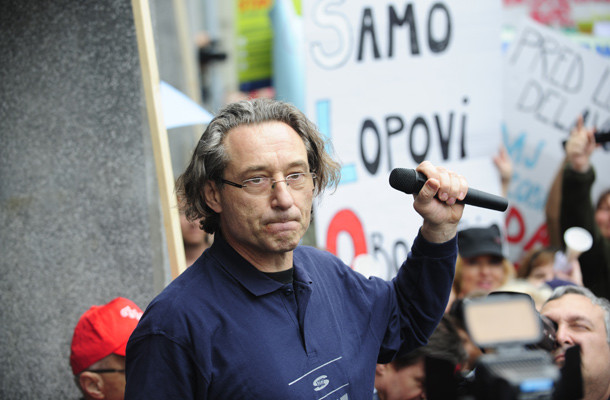Government Bought Social Peace, Economy Will Pay the Price
Published on 2 december 2014Although the savings will be much lower than initially proposed by the government, officials said the deal would suffice to form a viable budget. The trade unions said they were happy that pay would not be significantly affected.
The agreement envisages the extension of existing austerity measures plus additional cuts in bonuses and top-up pension insurance. In return the trade unions have been granted their demand for promotions to be made available again as of the end of next year.
While the government had initially hoped to secure EUR 130m in savings with the new deal, unofficial information suggests the figures is expected to be closer to EUR 20m-30m.
The agreement was initialled by both sides at the end of the talks and the individual trade unions will now seek endorsement from their membership ahead of the official signing scheduled for next Tuesday.
If confirmed by the trade unions, as expected, the threat of industrial action will be cancelled.
Prime Minister Miro Cerar and Finance Minister Dušan Mramor joined chief government negotiator Boris Koprivnikar, the public administration minister, as the talks were closed today.
"We have shown that we are capable of achieving smart, meaningful and constructive deals through dialogue and compromise," said Cerar.
"The effort put in by both sides to reach an agreement was great and I think we have achieved a deal that is still acceptable for both sides, but which will also require additional efforts to get us through 2015 financially," he added.
Mramor said the deal falls at the "extreme edge" of what was needed to form a budget that will meet the primary goal of reducing the deficit to below 3% of GDP next year.
The minister did not go into the specifics of how much the government expects to save with the deal or where it would make up for the difference for what it had to give up in return for agreement with the unions.
He highlighted that an important factor in the deal was also the avoiding the turmoil that industrial action would bring.
"This peace before the New Year, before Christmas and before Saint Nicholas Day is something that will positive effect consumption and consequently on growth."
The trade union representatives were also satisfied with the deal, labelling it as meeting the bare minimum requirements that they had throughout the talks.
Still, they said it amounts to a compromise for them, given that they had maintained that anything beyond an extension of the existing austerity measures in the public sector was unacceptable.
Branimir Štrukelj, one of the two chief negotiators for the unions, said a major win was to make promotions available again. They will kick into force as of December of next year.
In return for the promotions, the trade unions agreed to cuts in top-up pension insurance and performance bonuses.
Currently being funded with 30% of the original premiums, the top-up pension purse will receive only 10% premiums in the first six months of 2015 and then 15% in the next four. The 30% rate will be restored in November.
Meanwhile, performance bonuses, which are currently limited to 60% of that envisaged in the public sector pay system, will now fall to 40%.
As part of the deal, the sides also agreed to review the possibility of enabling a voluntary shortening of the working week, as part of which staff could choose to work 36-hour weeks (instead of 40 hours) for a corresponding reduction in pay.
Source: SloveniaTimes


